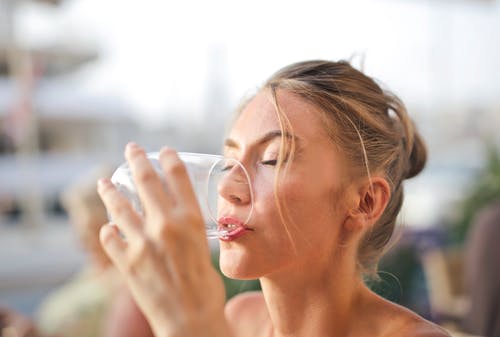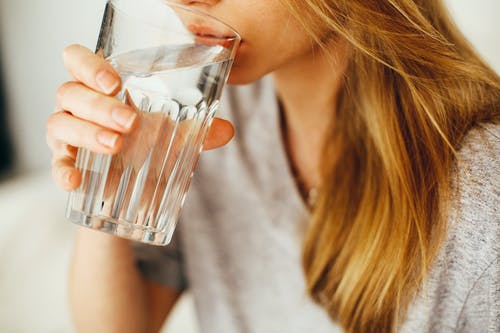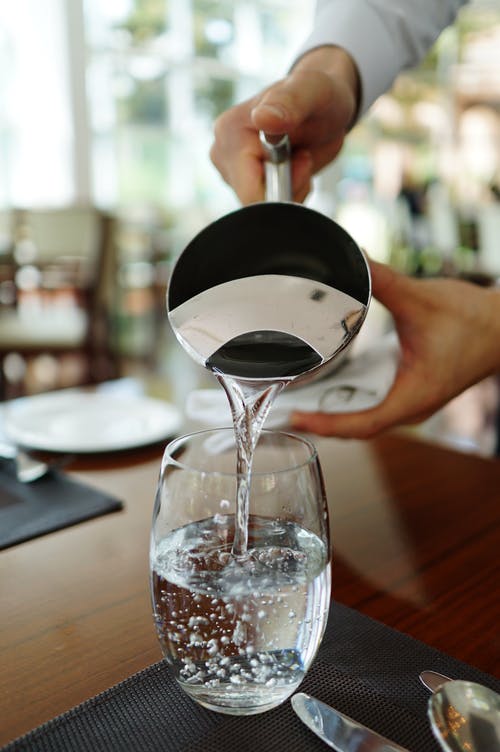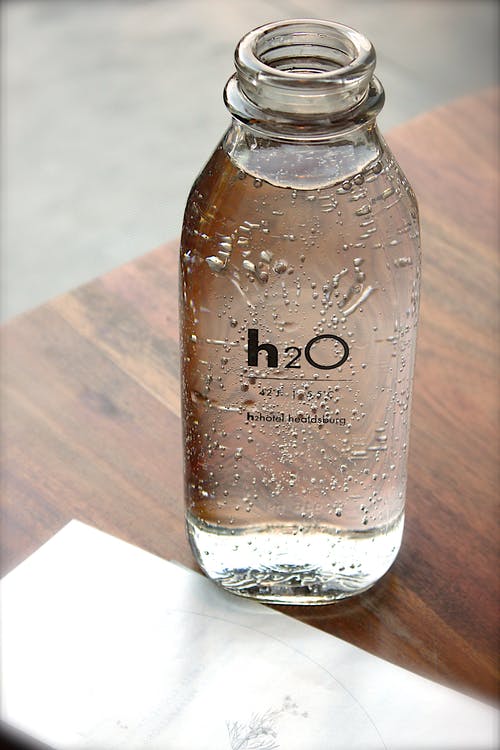There is a lot of confusion regarding the amount of water or the correct time to drink during a meal. However, as we discussed in the previous blog Ideal Ayurveda Diet, the fundamental concept stays the same. We need to preserve the digestive fire. And with this basic sutra, we can decode the place of water in an ideal Ayurvedic diet. Water is important and it serves multiple purposes during a meal.

Therefore, you must have water during the meal. But as Vedic proverb “ati sarvatra varjayet”, the excess is always harmful; the intake of water should be appropriate. Let’s see what is an appropriate intake of water and why.
Ayurvedic Diet – Water before a Meal – I
Imagine what will happen If you pour water over a fire? The same thing happens to our digestive fire when we drink too much water just before a meal. The water dilutes the digestive juices and makes them less effective for proper digestion. That’s why Ayurveda advises against drinking any water immediately before the meal. Ancient Ayurvedic texts compare drinking water immediately before a meal to drinking poison!

Most of the digestive enzymes in the body have an optimal temperature at which they perform the best. The body generates this optimal temperature in the stomach along with the hunger. Drinking water, esp. cold water, destroys this optimal temperature. The digestive enzymes become dormant, leading to substandard digestion.
” According to Ayurveda, drinking water, esp. cold water, leads to severe vatta imbalance in the digestive system “
Therefore, drinking water just before a meal might lead to bloating, constipation, indigestion, and stomach ache. In the long term, it might lead to chronic disorders like chronic constipation, irritable bowel symptoms, etc. But what if you are feeling extremely thirsty just before a meal? Ayurveda always provides enough good alternatives for water.
Ginger water – Water boiled with ginger paste or flakes works great to quench your thirst as well as boost the digestive system. But it should be either a warm or normal temperature.
Buttermilk – Buttermilk tempered by cumin seeds, curry leaves, black salt, and normal salt is a great digestive that can quench your thirst and aid digestion as well.
Cow’s milk – It is an excellent option. Ayurveda says that (ethically produced) cow’s milk is nothing less than Amrit (elixir). Ayurveda meal recommends the intake of milk as milk is a very effective anti-toxin.
Almond milk – It is a great option for people with vatta and kapha (kafa) prakrati. It warms the body and balances the entire digestive system.
Coconut milk – Coconut milk at normal temperature also is a great option, esp. for people with pitta prakrati.
Coconut water – it is a great option for pitta prakrati people. It immediately quenches the thirst and fatigue.
But sometimes, you might not have time to prepare these options. The simplest method is to drink a small amount of water and eat small flakes of ginger along with the water. Ginger will eliminate the anti-digestion impact of water and add fire to the digestion.
Ayurvedic Diet – Water in the Middle of a Meal – II
Ayurveda says that we should fill one-third of our stomach with solid food, one-third with air, and one-third with fluids. And this one-third of water should go inside your stomach in the middle of the meal.
” According to Ayurveda, the ideal time to drink water is in the middle of the meal “
However, this one-third of fluids does not constitute only water. It might contain lots of other things like soups, milk, buttermilk, etc. So, ideally, you should drink only a few sips of water in the middle of the meal. When the process of digestion starts in the stomach, it produces a self-sustaining heat of digestion. Therefore, drinking a tiny bit of water (normal temperature/ cooled by the earthen pot) is not harmful. This little amount of water also gets heated as it gets inside the stomach.
When we drink small amount of water in the middle of the meal, it serves a lot of purposes:

Water helps to enhance the flavor of the food.
It helps to relieve the burning sensation after eating pungent food like chilies.
It helps to moisten the food inside the mouth
It enables better food movement and chewing
It helps us to swallow dry food.
Therefore, do never drink water immediately before a meal, but do have small sips in the middle of the meal. These conditions fulfil the concept of balance in Ayurveda – not too much or too little, but appropriate!
Ayurvedic Diet – Water at the End of a Meal – III
Normally, people tend to wash down the meal with a glass of cool water. However, Ayurveda says that drinking water, esp. cold water immediately after a meal is also akin to drinking poison. And it does work as a slow poison, let’s see how –

At the end of the meal, most of the digestive juices are already at work. When you drink an excessive amount of water at the end of a meal, you are again creating a similar condition as when you drink water at the beginning of the meal. The only difference is that earlier, you were pouring fire on a newly lit fire. But this time, you will be pouring water on a fire burdened with heavy logs of wood.
However, it is natural to feel hungry if you have had a lot of dry food. This is the reason why Indians in Bengal have milk after a meal. South Indians have coffee and Indians in west India (Maharashtra) have Sol Kadi, and so on. All these traditional fluid recipes help to boost digestion! And the best thing is that all these recipes accommodate the local weather conditions. The rich Ayurvedic heritage is deeply ingrained in Indian cooking as well.
Conclusion
Water is the essence of life. It is the essence of an ideal Ayurvedic diet as well. However, it better to have water as an ingredient of a recipe instead of the plain form. That’s why, Ayurveda highly recommends yavagu (very thin fluid porridge), Kheer (thin rice and milk preparation), and all kinds of soups and gruels for a meal.
These fluid recipes maintain the water balance in the stomach without de-stabilizing the internal temperature or enzyme concentration. They have better bio-availability and prevent all digestive disorders.
I hope that this article helped you to gain some insight on the water usage in an ideal Ayurvedic meal.
